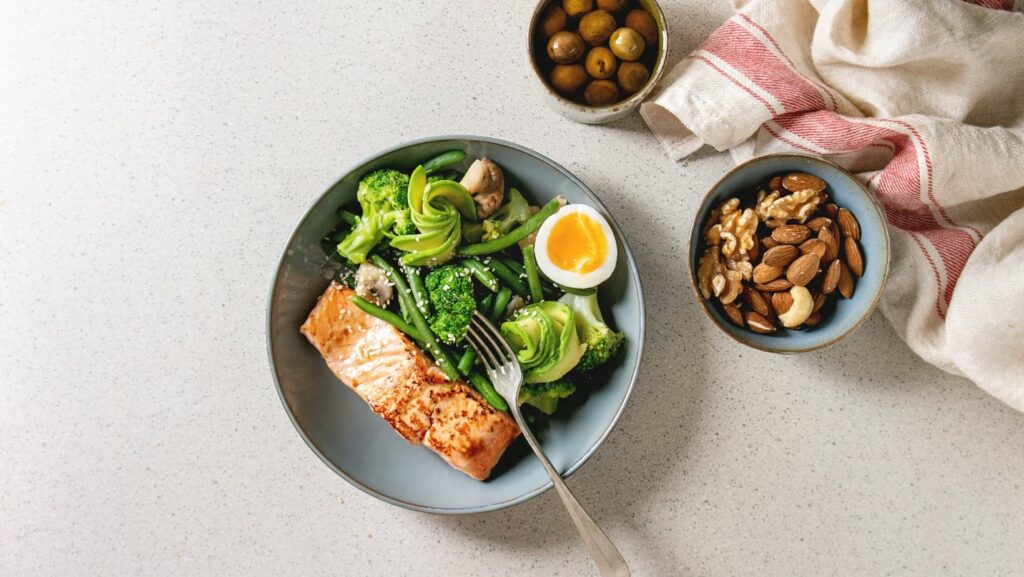Paleo Autoimmune Diet
The Paleo Autoimmune Diet, commonly known as the AIP diet, is a variant of the Paleo diet tailored to support individuals with autoimmune conditions. It emphasizes consuming nutrient-dense foods while excluding potential triggers such as grains, dairy, and nightshade vegetables.

The primary objective of this specialized diet is to diminish inflammation within the body, aiding in the healing process. By focusing on high-quality proteins, beneficial fats, and a diverse range of fruits and vegetables, followers aim to promote gut health, minimize immune responses, and enhance overall well-being for those grappling with autoimmune issues.
The core principles of the Paleo Autoimmune Diet revolve around the intake of whole, unprocessed foods to alleviate symptoms associated with autoimmune diseases. By adhering strictly to the diet’s guidelines, individuals seek to optimize their nutrition intake while reducing potential triggers that could exacerbate their autoimmune conditions. Emphasizing natural and wholesome ingredients, the diet aims to provide essential nutrients that support the body’s healing mechanisms and overall health.
Benefits of the Paleo Autoimmune Diet
By eliminating inflammatory triggers like grains, dairy, and nightshade vegetables, this diet helps support the body’s immune system and reduce autoimmune reactions.

The nutrient-dense foods in the Paleo Autoimmune Diet, such as high-quality proteins, healthy fats, and a variety of fruits and vegetables, can aid in improving gut health and alleviating symptoms associated with autoimmune conditions. This approach prioritizes whole, unprocessed foods that are rich in essential nutrients, providing the body with the necessary support to combat autoimmune diseases effectively.
In addition to its effects on autoimmune diseases, the Paleo Autoimmune Diet offers various general health benefits. By focusing on natural, wholesome ingredients and organic, locally sourced produce, this diet optimizes nutrition intake and supports the body’s healing mechanisms. The emphasis on high-quality proteins, healthy fats, and a wide range of fruits and vegetables ensures a well-rounded nutrient profile that can benefit overall health and well-being.
Key Foods and Ingredients
The Paleo Autoimmune Diet focuses on nutrient-dense foods that support the immune system and minimize inflammation. Here are key foods to include in this diet:
- Quality Proteins: Grass-fed meats like beef, lamb, and poultry are rich in essential nutrients, including omega-3 fatty acids, which help reduce inflammation and support overall health.
- Healthy Fats: Avocados, coconut oil, and olive oil provide essential fatty acids that aid in cellular repair and promote a healthy immune response.
- Fruits: Berries, such as blueberries and strawberries, are packed with antioxidants that help combat inflammation and oxidative stress.
- Vegetables: Leafy greens like spinach and kale, along with cruciferous veggies such as broccoli and cauliflower, provide vitamins, minerals, and fiber crucial for gut health and immune function.
To support autoimmune health, it’s essential to avoid certain foods that can trigger inflammation and exacerbate symptoms. Here are foods to steer clear of on the Paleo Autoimmune Diet:

- Grains: Wheat, barley, and rye contain gluten, a protein that can cause gut inflammation and aggravate autoimmune conditions.
- Dairy: Products like milk, cheese, and yogurt can be inflammatory and may worsen symptoms for individuals with autoimmune diseases.
- Nightshade Vegetables: Tomatoes, eggplants, peppers, and potatoes are part of the nightshade family, which some people with autoimmune conditions may react to negatively.
- Processed Foods: Foods high in additives, preservatives, and artificial ingredients can disrupt gut health and trigger inflammatory responses, making them unsuitable for autoimmune health maintenance.
The Paleo Autoimmune Diet, or AIP diet, offers a promising approach for individuals with autoimmune conditions. By focusing on nutrient-dense foods and eliminating potential triggers, such as grains and dairy, the diet aims to reduce inflammation and support healing. Emphasizing the importance of gut health and minimizing immune reactions, the AIP diet can have a positive impact on overall well-being. While challenges exist in adhering to the dietary restrictions and the varying scientific viewpoints on its effectiveness, consulting healthcare professionals and considering individual needs are crucial steps in determining the suitability of the AIP diet for managing autoimmune conditions.

